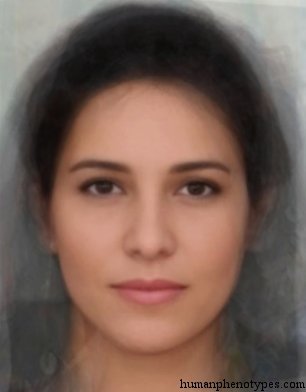Description
Widespread group, common all over the Mediterranean and adjacent regions. Long-headed, dark-eyed, with light brown skin, and straight to curly, often dark and abundant hair. Occiput protruding, chin small and well-modeled, mouth small, slightly softer and fuller than in Nordid, skulls often smaller. The tall Atlanto Mediterranid subgroup is typified by the narrow-faced Eurafricanids, but many include broader-faced, more ancient, cromagniform Berberids and the eastern Pontids, who seem connected to ancient Indo-Europeans of the Eurasian steppes (e.g. Kurgans around 5000 BCE). The small Gracile Mediterranid subgroup is usually regarded as the most typical Mediterranid. The short-nosed, wide-faced, and short Paleo Sardinians represent an older variety. Trans Mediterranids show intermediate features between Gracile and Atlanto Mediterranid. Mediterranoids in a broader sense include Orientalids and Indids. European colonists spread them all over America.
Physical Traits
Skull: Long-headed
Eyes: Dark
Skin: Light brown
Hair: Straight to curly, dark
Chin: Small, well-modeled
Mouth: Small
Occiput: Protruding
Hair texture: Abundant
The Mediterranid type is characterized by dolichocephalic (long-headed) skull shape with protruding occiput. Facial features include dark eyes, small and well-modeled chin, and small mouth that is slightly softer and fuller compared to Nordid types. The skull size is often smaller than other European types. Skin tone ranges to light brown, while hair is typically dark, abundant, and varies from straight to curly in texture.
Literature References
This phenotype has been extensively documented in anthropological literature under various names:
- Mediterranid (Eickstedt, 1952; Vogel, 1974; Knussmann, 1996)
- Mediterranean (Hooton, 1946; Coon et al., 1950; Cole, 1965; Debets, 1974; Alexeev, 1979)
- Indo-Atlantique (Deniker, 1889)
- Méditerranéenne (Vallois, 1968)
- Mediterranea (Biasutti, 1967)
- Homo sapiens pelagius (Fischer, 1829)







